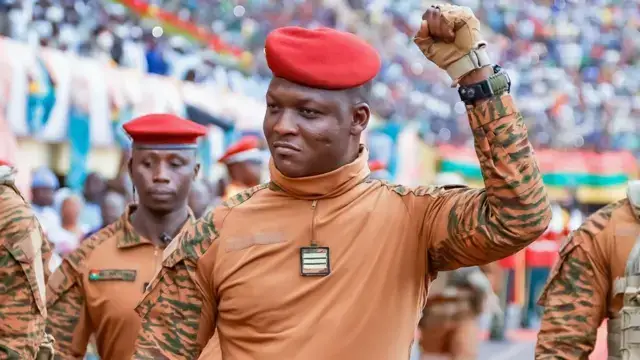
By Kennedy Nalyanya
Burkina Faso’s military rulers have officially dissolved the country’s independent electoral commission, claiming it was a “waste of money,” state broadcaster RTB Television reported.
All future elections will now be managed by the Interior Ministry, in a controversial shift away from independent oversight.
How did Burkina Faso get here?
Captain Ibrahim Traoré came to power in September 2022, following the country’s second military coup in just eight months. He ousted fellow junta leader Lt. Col. Paul-Henri Sandaogo Damiba, who had himself overthrown a democratically elected government in January 2022.
The successive coups were justified as responses to the government's failure to contain worsening jihadist violence, which has displaced more than 2 million people and left thousands dead across northern and eastern regions of the country.
Once in power, Traoré promised a swift return to civilian rule. However, elections scheduled for 2024 were postponed, and in May 2023, the junta extended the transition timeline to July 2029—a move that drew criticism from regional bodies like ECOWAS and human rights groups.
Critics say the disbanding of the electoral commission is another step toward entrenching military rule, and consolidating power ahead of any eventual return to the ballot box.
With the Interior Ministry—effectively under the control of the junta—now in charge of elections, the path to a credible democratic transition becomes more uncertain. Traoré remains eligible to run for president in any future vote.
There has been no immediate reaction from opposition leaders, but observers warn this could trigger fresh domestic and international backlash.


Add comment
Comments